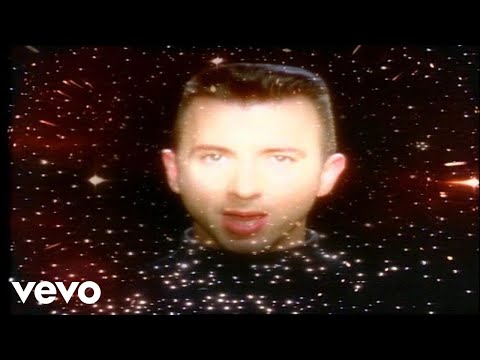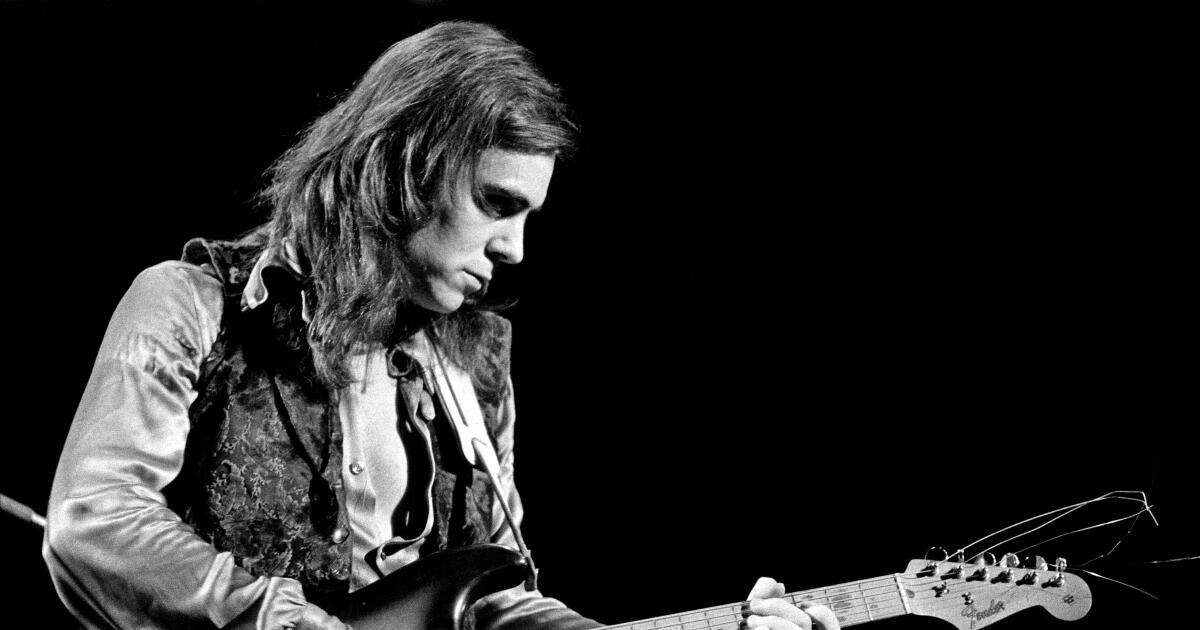Soft Cell’s David Ball, hitmaker behind ‘Tainted Love,’ dies at 66
David Ball of Soft Cell, whose delectably sleazy synth-pop arrangement drove that English duo’s 1981 hit “Tainted Love” to the top of the U.K. singles chart, died Wednesday. He was 66.
The producer’s death was announced in a post on Soft Cell’s website, which didn’t state a cause but said that Ball died at his home in London. On Facebook, the duo’s singer, Marc Almond, wrote that Ball’s health “had been in slow decline over recent years” due to an unspecified illness.
“It is hard to write this, let alone process it, as Dave was in such a great place emotionally,” Almond said on Soft Cell’s site. “He was focused and so happy with the new album that we literally completed only a few days ago. It’s so sad as 2026 was all set to be such an uplifting year for him, and I take some solace from the fact that he heard the finished record and felt that it was a great piece of work.”
Ball and Almond performed as Soft Cell at last month’s Rewind Festival in England; the LP they’d just wrapped is set to be titled “Danceteria” after the New York City nightclub that became an incubator of new wave and synth-pop in the early ’80s.

Soft Cell was an “experimental electro band [writing] weird little pop tunes about consumerism,” as Almond told the Guardian in 2017, when the duo decided to record a cover of “Tainted Love,” which the soul singer Gloria Jones had introduced to little success in 1964.
Ball devised his take on the song using his “dodgy old Korg synths” as well as a state-of-the-art Synclavier that cost more than £100,000, according to the Guardian. Soft Cell’s cover felt “twisted and strange,” Ball said, which suited the “weird couple: Marc, this gay bloke in makeup, and me, a big guy who looked like a minder.”
With Almond’s panting vocal over Ball’s sexy yet sinister production, “Tainted Love” hit No. 1 in the U.K. the same year as the Human League’s “Don’t You Want Me” and “Prince Charming” by Adam & the Ants. In the U.S., “Tainted Love” peaked at No. 8 on Billboard’s Hot 100 in 1982.
Today the song has been streamed more than 1 billion times on Spotify, kept alive in part by Rihanna’s prominent sample of “Tainted Love” in her 2006 hit “SOS.”
Ball was born May 3, 1959, in Chester, England, and grew up in an adoptive family in Blackpool. He and Almond formed Soft Cell in 1979 after meeting as students at Leeds Polytechnic, where Almond was known for a performance art piece in which “he’d be naked in front of a full-length mirror, smearing himself with cat food and shagging himself,” Ball told the Guardian.
The duo released its debut album, “Non-Stop Erotic Cabaret,” in 1981, then followed it with two more LPs before splitting in 1984. “Few groups took as much pleasure in perversity,” said Rolling Stone, which called “Non-Stop Erotic Cabaret” a “conceptual salute to the sex industry.” In 2022, Pitchfork said the duo’s debut offered “a snapshot of pre-AIDS queer life at its heady peak.”
After Soft Cell’s breakup, Ball collaborated with Genesis P-Orridge of Throbbing Gristle and formed a dance group called the Grid with the producer Richard Norris; he also worked in the studio with the likes of Kylie Minogue, the Pet Shop Boys and David Bowie.
Soft Cell reunited in 2001 and again in 2018; the statement on the band’s website said “Danceteria” would come out in early 2026. According to the statement, Ball’s survivors include four children.

